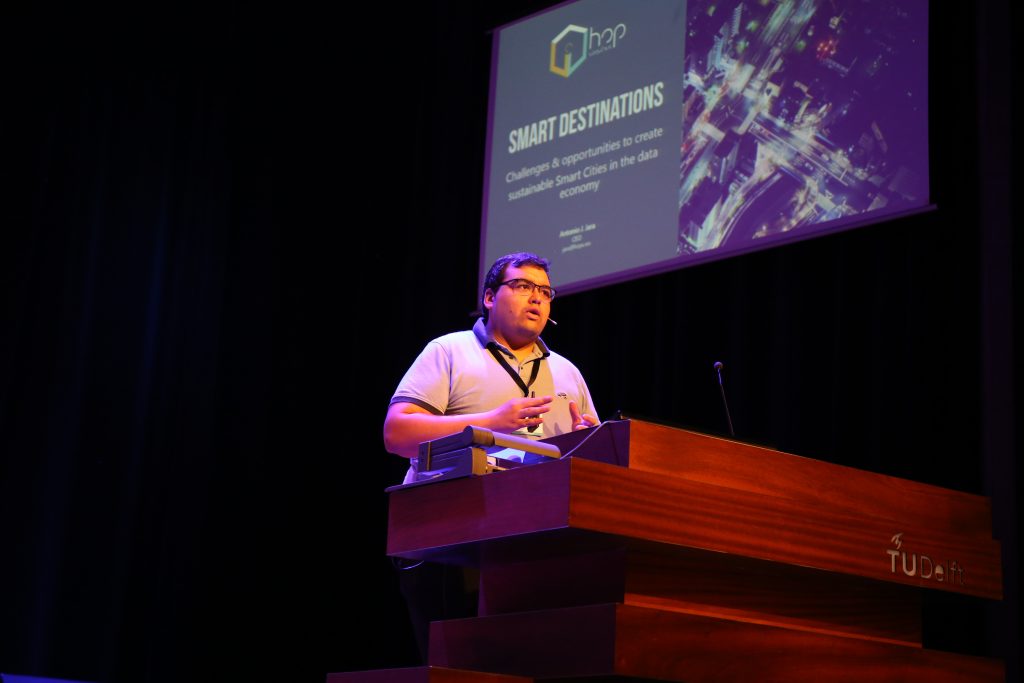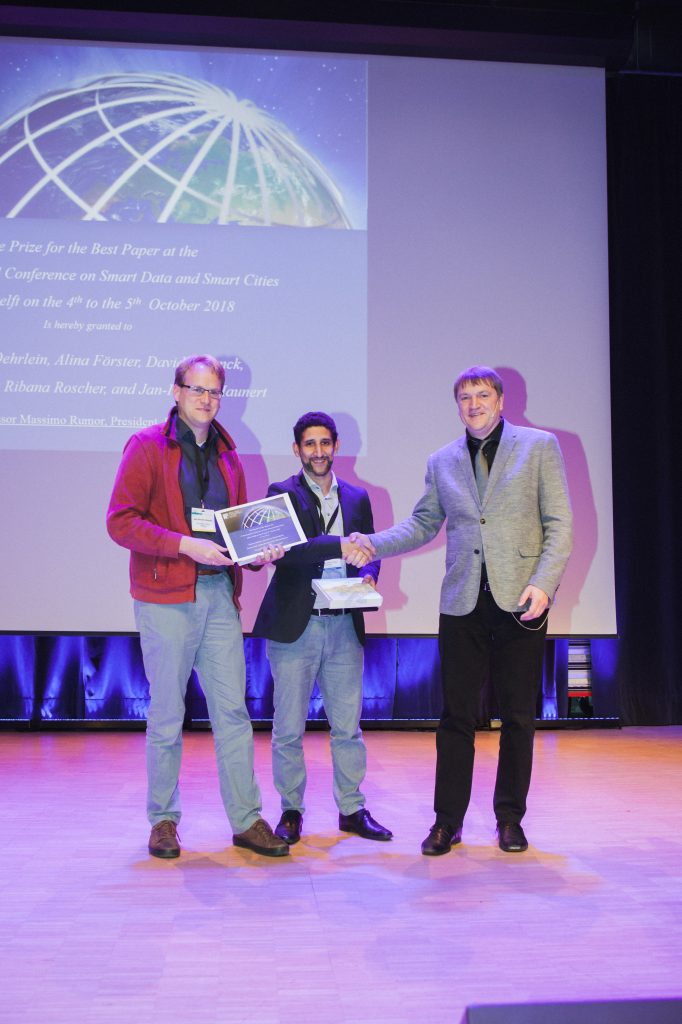The increasing interest in Smart Cities world-wide, along with a growing understanding of the importance of integrating “Smart” data with other data and wider applications for the benefit of citizens, made the choice of hosting the third Smart Data, Smart Cities conference in Delft – in conjunction with three other conferences – a very natural one. Together the four conferences were held during the week of 1st – 5th October 2018, and alongside SDSC participants were invited to attend the ISPRS Technical Commission IV Symposium, the 13th 3D GeoInfo Conference and the 6thInternational FIG Workshop on 3D Cadastres. Participant interaction– and the ability to attend sessions across the four events – was particularly encouraged. The joint conference was a big success with appealing keynotes, excellent presentations in parallel sessions, and many opportunities to “think out of the box”.
At the SDSC conference many different aspects of Smart Cities were highlighted in two parallel tracks over two days. The presentations have been selected from 34 submissions on the basis of double blind review, with each paper being reviewed by a minimum of three reviewers. Out of these submissions, 7 papers have been selected for the publication in ISPRS Archives, and 18 papers for ISPRS Annals. The papers present novel research concerning the use of spatial information and communication technologies in Smart Cities.
The conference addressed different aspects of Smart Data and Smart Citizens with focus on sustainable mobility and transportation, citizen engagement and participation, Sensors and web-based dashboards, and urban decision making. The presentations include both new theoretical concepts, e.q. a new approach on semantic modeling and scale, as well as application driven developments such as interactive visualizations of the energy consumption analysis. Often, the work presented has shown synergies of different types of sensors that communicate with modern sensor protocols and standards such as the SensorThing’s API and a 3Drepresentation of the build environment using CityGML. The scale differs from regional and urban scale on mobility studies and traffic monitoring to detailed monitoring of individual buildings. One joint session organized by the Open Geospatial Consortium had a special focus on standards for Smart Cities.
Sensors played an important role in many presentations and throughout the conference, the diversity, e.g., ultrasound, cameras, temperature sensors, to name but a few, and possible use of them was presented in detail. An impressive work by Oehrlein et al., which also won the”Best Paper Award”, focused on new algorithms for predicting favorite cycling routes based on less-traveled tours. Other presentations dealt with relevant topics of safety and the use of sensors to detect persons in buildings during fires. Citizen participation in urban change is playing an increasingly important role in an age when change is the only constant. Therefore, two sessions dealt with this topic to encourage citizen participation and to use possible platforms for decisions. New developments in data analysis using Deep Learning technology and their application in the context of Smart Cities have been presented.
The key note of the SDSC conference was given by Antonio Jara on “Smart Destinations: Challenges and opportunities to create sustainable smart cities in the data economy”. He is founder of HOP UbiquitousS.L. (www.hopu.eu), vice-chair of the IEEE Communications Society Internet of Things Technical Committee, and adjoint scientifique in the University of Applied Sciences Western Switzerland.
In addition to the scientific program, there was also a variety of activities including excellent field trips such as a visit Rotterdam municipality, and appealing social events that greatly simplified networking and introduced the region and culture. Especially to mention are the joint dinners with traditional clothing and Dutch food.
SDSC 2018 itself was organized by the Urban Data Management Society (UDMSwww.udms.net),ISPRS and TU Delft (the Delft University of Technology). Volker Coors, Professor at HFT Stuttgart, chaired the SDSC committee.


